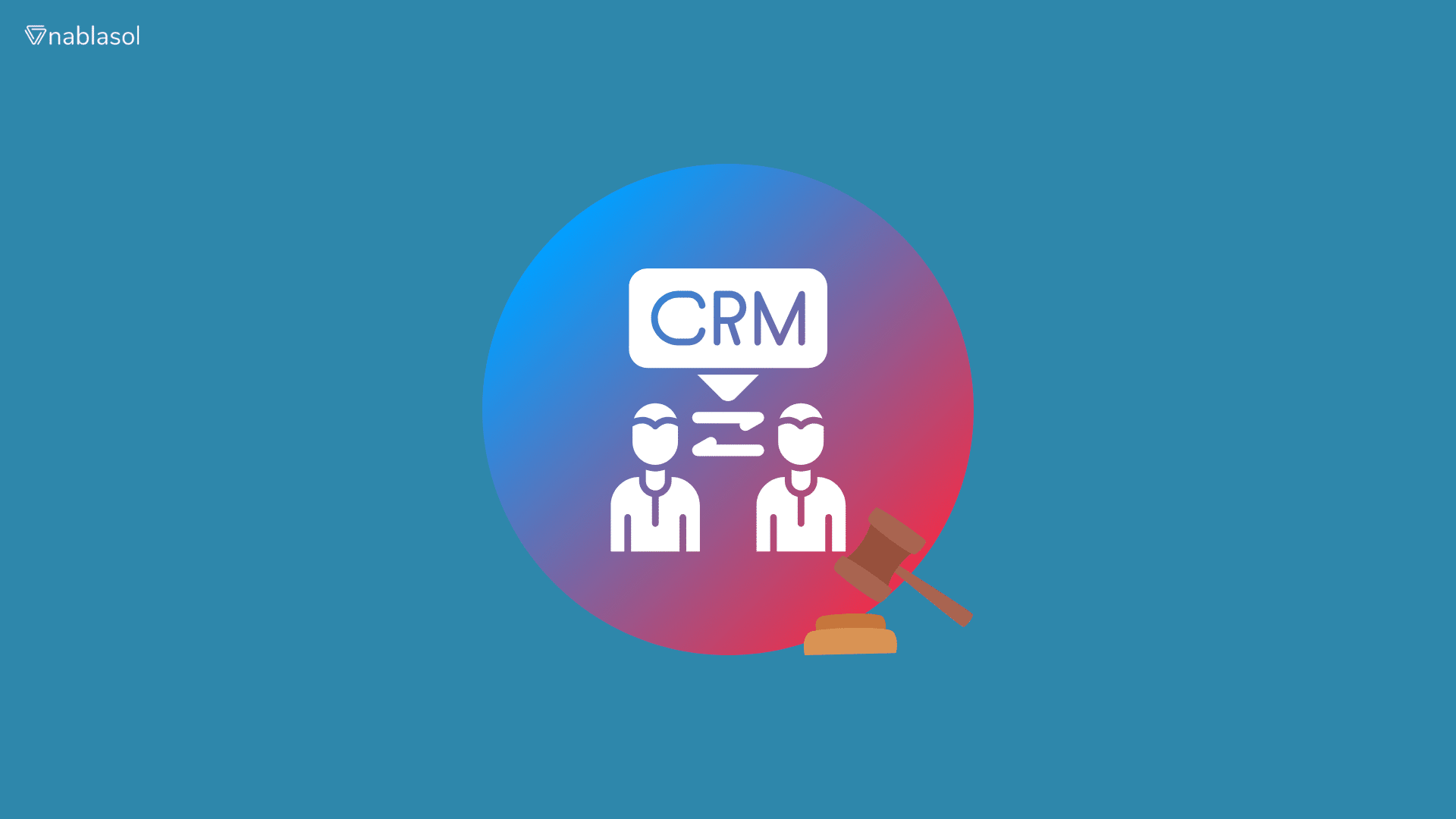Success in the always-changing terrain of legal services depends mainly on efficiency and client satisfaction. Managing complicated case facts, preserving client relationships, and guaranteeing flawless team member communication can all prove difficult for legal businesses. These challenges can cause operations to slow down and influence the caliber of the services provided. CRM systems are changing how legal firms operate, improving processes and raising service performance.
Why Legal Firms Should Have CRM Systems
Legal professionals manage a wide range of responsibilities, from client correspondence to case administration and document handling. Without a centralized system, information might get scattered, which causes inefficiencies. CRMs close this divide by providing a single platform for client data management, communication tracking, and task automation. This guarantees that every critical detail is noticed and increases output as well.
A legal CRM can, for instance, enable team members to assign tasks, track deadlines, and generate thorough case status reports. These instruments allow legal teams to concentrate on their primary duties—such as developing solid arguments or offering strategic advice—instead of becoming mired in administrative chores.
Simplifying Customer correspondence
The foundation of every successful legal practice is client satisfaction. A CRM helps companies maintain all client-related data in one location, guaranteeing prompt and customized communication. Features like automated email follow-ups and reminders help attorneys keep clients informed and on their calendars.
Additionally, CRMs let teams record client encounters, offering a precise communication history. This openness helps build trust and lowers the possibility of misunderstandings. Clients’ attorneys feel appreciated when their attorneys remember specifics about their situations and offer periodic updates.
Enhanced Document Control
Legal matters can call for a lot of paperwork. Manually organizing these files can take time and lead to mistakes. Document management tools included in CRMs let companies easily store, classify, and retrieve documents.
Team members with a CRM can rapidly access pertinent records anywhere they are housed. This is quite helpful for companies with several offices or remote workers, especially. Centralized document storage guarantees that everyone uses the most current information, lowering the possibility of mistakes.
Automation of Consistent Work
CRMs’ capacity to automate everyday tasks is among their most powerful advantages. The system can handle customer appointments, reminders, invoicing generation, and reminder scheduling. This saves important time by removing the need for human intervention and, therefore, lowering the possibility of human error.
Automation also guarantees constant and timely completion of chores. A CRM can, for instance, automatically inform lawyers of forthcoming client appointments or court dates, guaranteeing their preparedness. By lessening the load of repetitious chores, legal professionals can devote more time to case strategy and client advocacy.
Improving Team Unity
Legal matters can involve several team members, including senior attorneys, associates, and paralegals. A CRM helps improve teamwork by providing a common forum for task management and communication. Team members can track real-time development, distribute assignments, and provide updates.
This degree of cooperation is especially beneficial in difficult circumstances involving several parties. Everyone involved may be updated on their obligations and deadlines, guaranteeing the team’s cohesiveness.
Decisions Made Driven by Data
CRMs also offer a significant benefit regarding actionable insights made possible by analytics and reporting. These tools let legal companies monitor performance indicators, spot patterns, and guide choices. A CRM might show, for instance, that a given kind of case takes more time to settle, which would cause the company to spend more funds or simplify procedures.
Data-driven insights help companies stay competitive in the market and enhance their operations. In addition, CRMs track client retention rates, assist with revenue forecasting, and point out areas of potential development.
Spotlight on SugarCRM
Legal companies sometimes prioritize scalable, user-friendly, and configurable platforms when choosing a CRM. One such offering that has been popular among legal firms is SugarCRM.
SugarCRM distinguishes itself with its strong capabilities and easy-to-use interface that allow one to customize it to fit the particular requirements of lawyers. It provides a broad spectrum of instruments for reporting, workflow automation, and client administration. SugarCRM also easily connects with other programs routinely used in law offices, including accounting tools and document management systems.
One of SugarCRM’s main advantages is its flexibility. Legal businesses can personalize the system to fit their particular company goals and procedures. SugarCRM offers the capabilities needed to improve effectiveness and deliver outstanding service, whether handling client billing or tracking case milestones.
Moreover, SugarCRM’s emphasis on customer experience guarantees that clients feel appreciated at every interaction. Its sophisticated analytics and reporting features help companies better understand client demands and preferences, facilitating more individualized services.
In summary,
Legal firms trying to streamline their processes and raise client satisfaction now find CRMs essential tools. These solutions help lawyers run more effectively and concentrate on what matters most—delivering outstanding legal services—by simplifying communication, automating chores, and promoting teamwork.
Tools like SugarCRM show how CRMs may be customized to fit the particular needs of the legal sector. SugarCRM’s extensive capabilities and adaptability help companies maximize their operations and create closer client relationships.
Legal firms trying to remain competitive in a fast-paced environment now view investing in a CRM as a need rather than a luxury. Adopting this technology helps companies streamline their internal procedures and enhance their whole client experience, guaranteeing long-term success in a market driven by change.



